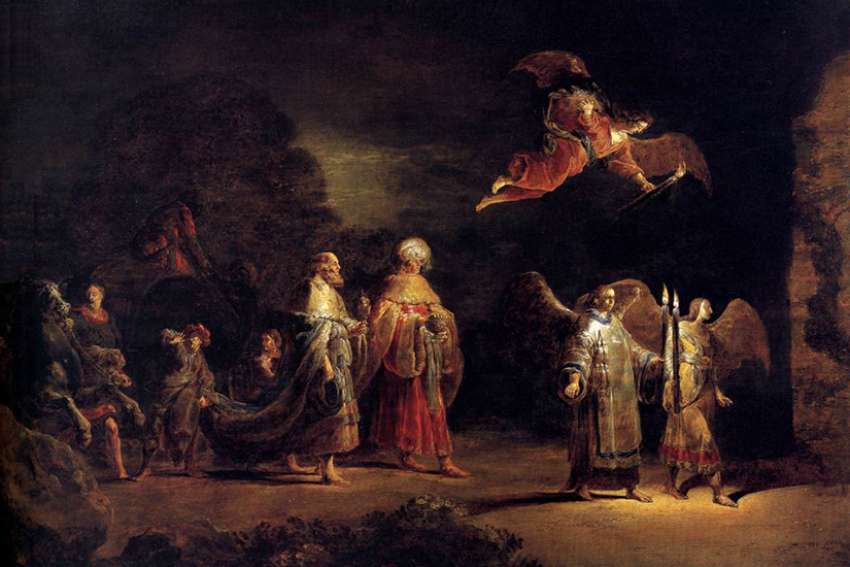As we conclude the Christmas season with the Feast of the Epiphany on Jan. 6, Fr. Dwight Longenecker hopes to cut through that “mishmash of myth” with his latest book, Mystery of the Magi: The Quest to Identify the Three Wise Men.
“It gets easy for people in the pew to put all of those (stories) together in this great big, magical Christmas box,” said Longenecker. “I wanted to sort of cut through all of that, not to be a Scrooge, but to say that underneath it all is actually an historical event.”
His investigation starts in the first century with the writing of Matthew’s Gospel, the only one to mention the three wise men.
“Most modern New Testament scholars dismiss the magi story as a fable or a pious fiction,” said Longenecker. “They think that the early Christians made up the story to make Jesus more special and I was skeptical of their skepticism.”
Longenecker said the story of the three wise men as people know it today is likely far removed from the historical events it draws from, much like the Broadway musical Camelot is loosely related to the historical King Arthur.
However, Longenecker believes that clues exist in the Gospel of Matthew that can help identify the true story.
In his book, Longenecker writes that the stories in Matthew’s writings are based on eyewitness accounts of events. Where it becomes legend, however, begins in the Middle Ages when theologians widely assumed that the “three kings of Orient” originated in Persia.
The Greek word that Matthew used for “wise men” was “magoi,” borrowed from the Persian “magus.” Historically, magi were Persian priests known to be sages and stargazers.
Christians in the sixth century began drawing connections with the magi of Persia and ancient prophecies of a coming saviour by the Persian prophet Zoroaster.
However, Longenecker said that by the time of Jesus’ birth, the wealth, power and prominence of the magi had faded. Therefore, he said these Persian priests may not have had the motivation to embark on a costly journey to a new King of the Jews.
Instead, he found clues of another tribe called the Nabateans, a nomadic Arabian tribe known in the ancient Middle East to trade ginger, frankincense, myrrh, gold and other native products.
“The Nabateans claimed to be descended from Abraham, just like the Jews did, so they were like cousins to the Jews,” said Longenecker. “All of that sort of indicated that they would also be very interested in the newborn King of the Jews because they already have that heritage.”
In light of his investigation into the origins of the three wise men, Longenecker does not advise the lay faithful to abandon singing “We Three Kings of Orient Are” or the three crowned men depicted in a Nativity set.
“What readers should take away from this is if Matthew’s magi story is rooted in Arabian history, politics and economics, then the story is not a fabulous fiction after all,” said Longenecker. “If the Gospel is historical, then it is true and if it is true, then we must confront the reality of Jesus Christ.”
Journey of the Three Magi to Bethlehem by Leonaert Bramer, 1640
Public domain/New York Historical Society
Priest follows the trail of three wise men
By Jean Ko Din, The Catholic Register
When the story of Jesus’ birth is told in the same breath as the story of Santa Claus and Frosty the Snowman, it’s easy for the greatest story ever told to lose its weight as historical truth.
Please support The Catholic Register
Unlike many media companies, The Catholic Register has never charged readers for access to the news and information on our website. We want to keep our award-winning journalism as widely available as possible. But we need your help.
For more than 125 years, The Register has been a trusted source of faith-based journalism. By making even a small donation you help ensure our future as an important voice in the Catholic Church. If you support the mission of Catholic journalism, please donate today. Thank you.
DONATE

